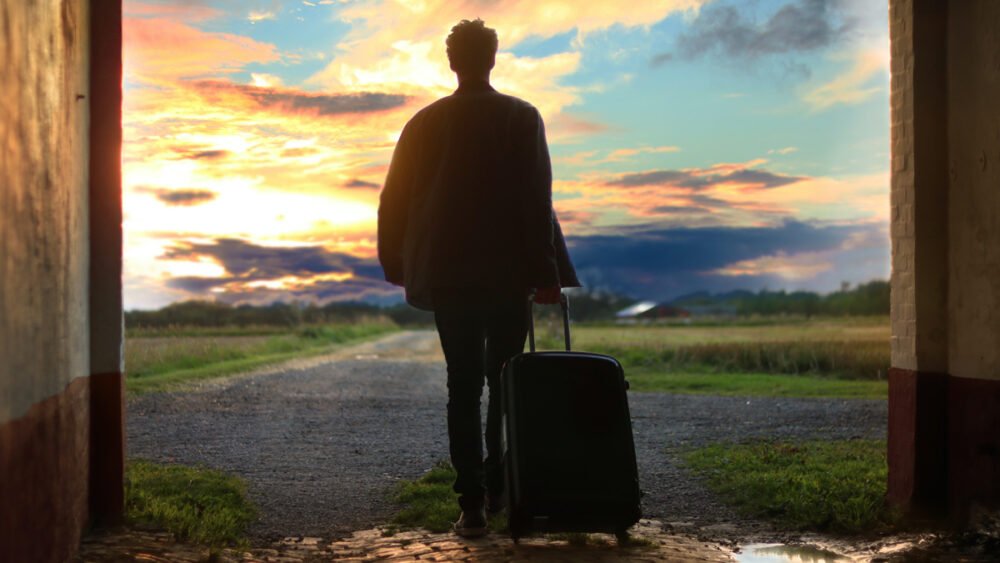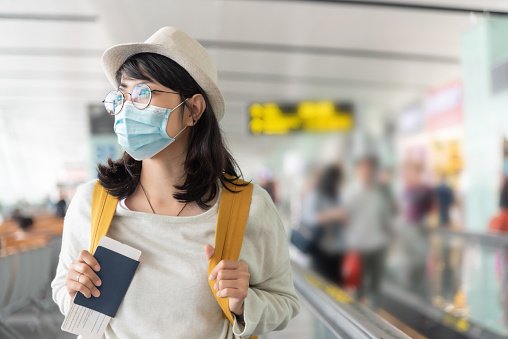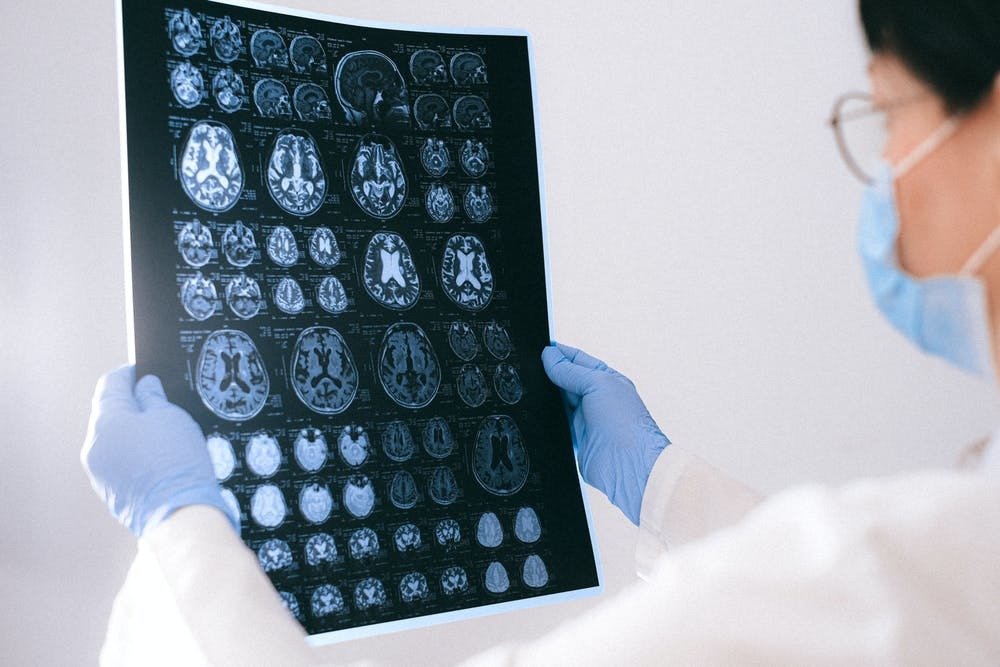The Neurobiology of Travel: How Does Travel Change Your Brain?

It was Aristotle that said “we are what we repeatedly do”, and he was – and still is – categorically right, but not necessarily in the context that he originally intended.
Modern science has been the cornerstone for understanding what ‘makes’ us. What was once a black and white perception – that we are solely composed of the building blocks that are our genes – has now broadened. We have realised the true extent that our actions and experiences have on a biological and psychological level, and this has revolutionised the fields of both psychology and neurobiology.
So, our experiences hold a lot more value than we originally thought, especially when it comes to our brains. As we grow, age and experience, our brains are adapting, through a process known as neuroplasticity.
The more enriching experiences you have, the more your brain grows, expands and enhances its connections. And one of the best ways you can do this is by travelling. Neuroscientists have stated that travelling has the capacity to enable new connections in your brain to grow.
There are many aspects of travelling that we know and love that we don’t realise are helping us on a chemical level and that are helping to strengthen and expand connections in our brain for the better. Let’s shed some light on Aristotle’s words of wisdom, and see just how travel affects our neurobiology.

Travelling is Better for Your Psychological Well-being
We all have our individual reasons for packing up and jetting off, but one thing that we share is that we enjoy the experience and research has shown that it even improves our psychological well-being in a number of ways:
It Reduces Stress
Travel helps us disconnect from the reality of our normal everyday life. This means the stress hormones we would normally be releasing, such as epinephrine and cortisol, are in lower concentration when we’re on holiday. Research has shown that short holidays improve our perceived stress levels and our general well-being and, amazingly, its effects on our well-being can even continue as far as 45 days post-holiday.
It Protects Us from Diseases and Disorders
Travel’s influence on our mental health is even more potent than you would think. Research has shown that travel, particularly for individuals who are retired, is protective against the development of both Alzheimer’s disease and dementia.
Travelling also reduces the likelihood that we will develop certain mental disorders, such as depression. Research has shown that women who have one vacation every two years are more likely to have depression and increased stress levels than their more frequently vacationing counterparts.
Travelling Makes You Happy
The experience of going on holiday and escaping everyday reality is an exciting and equally inviting experience that leaves a lasting effect on our mental well-being and happiness.
But it’s not just the act of traveling – when an upcoming trip is approaching, our happiness levels increase and our mental well-being significantly improves. Dopamine is a neurotransmitter often referred to as the ‘pleasure hormone’, and it is released when we’re experiencing, or even anticipating experiencing, something exciting – like travelling.
Similarly, another study found that those who have holidays booked were a lot happier in life and didn’t report as many negative feelings. In fact, in comparison to buying material goods, people are much happier when anticipating an experience, research has shown.
Travelling Increases Creativity
Our experiences when travelling may even help spark our creative sides. Individuals who tend to be more creative, writers and artists for example, are those who have travelled.
Picasso for one, spent the majority of his life as an expat and travelled from place to place before settling in Paris, and Ernest Hemingway, one of the most famous writers and journalists in history, spent most of his life hopping from country to country – which in turn inspired a lot of his work.
Experiences that we have in foreign environments expose us to new sensations – tastes, smells and sounds – which in turn can “increase both cognitive flexibility and depth and integrativeness of thought, the ability to make deep connections between disparate forms” according to Adam Galinsky, an American Social Psychologist, who studies the relationship between international travel and creativity.
He conducted research with creative directors of fashion outlets and found that those who spent more time abroad were producing more creative designs more frequently.
So, essentially, having new experiences, in which you are exposed to novel sensations, alters the neural map of your brain – activating new regions and forming new connections. This allows new relationships to be created between different ideas and concepts, resulting in increased creativity.
Travelling Lets You Learn a Language
Before a trip, regardless of the length of time we’re travelling for, we’ll find ourselves at least learning some common phrases and courtesies to help us on our way.
When it comes to our brain development, learning a language is one of the most influential forms of learning we can undertake. Learning a language enhances our brain’s plasticity and ability to learn new things. Research has shown that the more languages people learn, the faster our brains react and code new information, which is demonstrative of neural plasticity.
Research shows that there is a critical period of second language acquisition, a period in which we are more attuned to learning a language and can acquire language more successfully. Those who learn a second language at a young age are most successful at achieving native-like fluency, which is evidence supporting a critical period. Further research has shown that this period is most likely to be before the age of seven, but that language is more easily acquired up until puberty.
On a neurobiological level, learning a new language increases the density and volume of gray and white matter in our brains, and the amount of activation in brain areas, such as the language areas.
So, in other words, the sooner we learn a language, the better it is for us to be able to enhance our memories and acquire more information in the future. However, whatever your age, learning a language has incredible benefits for your brain.
Travelling Helps Our Problem Solving
Problem solving and travel come hand in hand. It helps you to think on your feet and have to resolve and overcome any hurdles you face on your trip; hurdles like planning your routes on public transport, navigating your way to sites or buying tickets. Even in situations we haven’t experienced before, our brains have the capacity to navigate our way out of these difficult situations.
The prefrontal cortex is one of the areas responsible for managing problem solving. Those who engage in problem solving have increased activity in their lateral prefrontal cortex.
Engaging in problem solving activities, such as your weekly sudoku or crossword puzzle, can even prevent mental decline as we age, or keep the brain in better condition so that age-related decline is not as noticeable. Therefore, it is important to keep our brains plastic, and travelling is one way to do this.
Travelling Makes Us Smarter
We love travelling AND it makes us smarter? It’s true, travelling can actually make you smarter. A study of chimpanzees showed that those who travelled larger distances regularly were more intelligent and resourceful than counterparts who travelled less frequently.
Memory is considered to be a predictor of IQ, thus those with better memory have a higher IQ – one of the most common measurements of intelligence.
Travelling, particularly to new countries with different languages, has been shown to increase the gray and white matter volume in the brain regions responsible for short-term memory and attention.
And in general, travel helps our brains function at a higher capacity. Research has shown that individuals who are retired and travel have a 75% increase in mental stimulation compared to 57% in those who don’t travel, and that this stimulation is actually linked to higher IQ.

It’s safe to say that Aristotle was right – our brains are shaped by what we do. Our travel habits and experiences on the road contribute to our brain development more than we know, in a multitude of ways. All the more reason to pack those bags and jet off on your next adventure. Where to next?